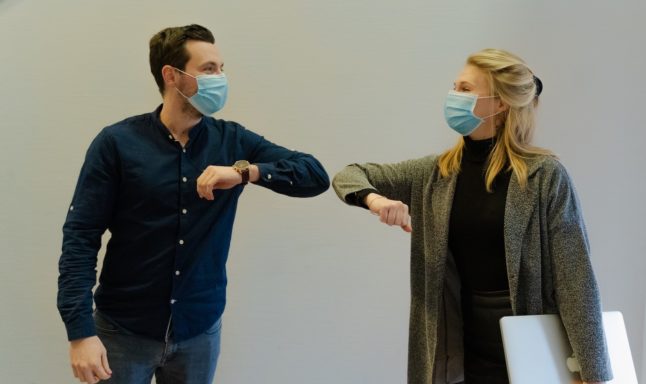Rapid Covid tests: pharmacies and test centres are fully booked
It may be difficult to get a last-minute coronavirus test this week.
To ensure safe family get-togethers over Easter, an increasing number of people is taking advantage of free antigen testing. As a result, many test centres and pharmacies across Switzerland are fully booked until after the holiday.
“We noticed last week that demand had risen sharply and the time slots we had were immediately booked up”, according to Valeria Dora, owner of the Morgental pharmacy in Zurich.
Migros is planning further price reductions
In its annual report, Switzerland’s largest supermarket chain has said it lowered prices on hundreds of its products throughout 2020, and is planning to continue to do so this year.
“We noticed that customers are reacting to the discounts and we are planning further price cuts wherever possible”, said Migros president Fabrice Zumbrunnen, adding that the chain’s philosophy is “not just about the price, but also about quality”.
Migros hat Extremjahr 2020 erfolgreich bewältigt: https://t.co/93yh2fc67e pic.twitter.com/LC1jiIsKDt
— Migros (@migros) March 30, 2021
Dozens of new companies opened in Zurich
Organisation called Greater Zurich Area (GZA) announced that 86 companies set up their operations in the Zurich region last year. That is a 21-percent decrease over 2019, but a satisfactory number nevertheless, given the economic impact of the pandemic.
These businesses created 510 jobs in the area and are planning to offer nearly 1,600 more over the next five years, according to Tages Anzeiger newspaper.
Most of the new companies work in the information and communication technology sector, the life sciences, the machine industry, and financial services. The majority are from the United States, Germany, and China.
New storage measures may boost Switzerland’s vaccination numbers
After a decision of regulatory authority Swissmedic, the Pfizer / BioNtech corona vaccine no longer has to be stored permanently in special freezers in Switzerland.
Newly submitted stability data reviewed by the authority shows that the quality is guaranteed for up to two weeks, even at deep-freeze temperatures between -25C and -15C.
Due to the fact the vaccine no longer has to be stored in special refrigerators, doctors’ practices and pharmacies can now also administer the vaccine.
Swissmedic hopes that this will enable the vaccination rate to be increased in Switzerland.
Only the Pfizer/BioNtech and Moderna vaccines are currently being used in Switzerland, with Johnson and Johnson’s vaccine being approved but will not be purchased by the Swiss government.
READ MORE: Johnson and Johnson deny vaccine will be available privately in Switzerland
Zurich installs larger rubbish bins due to take away packaging
The onset of the pandemic and the subsequent lockdown has led to an increase in take away food consumption.
Zurich authorities have responded by installing new waste receptacles with larger openings and capacity to take more take away trash – and make sure it doesn’t end up on the street.
The “Züri-Bucket 110 liters” are now gradually being installed where there is a need.
Switzerland approves Roche self-tests – will be rolled out in pharmacies from April 7th
Switzerland has finally approved the coronavirus self-tests made by Swiss pharma company Roche.
Now, the self-tests – which were originally planned to be available in Swiss pharmacies from mid-March – will be available to the general public from April 7th.
The delay was due to concerns that the tests may not be accurate enough, but Swiss authorities now say they are convinced.
Swissmedic has however warned that self-tests from abroad should not be used as they may be unreliable.
Swiss residents are entitled to five free tests per month.
The ‘rapid tests’ use a sample from the front of the nose instead of the larynx, making them more comfortable and easy to use.
Results are available in 15 minutes.



 Please whitelist us to continue reading.
Please whitelist us to continue reading.
Member comments